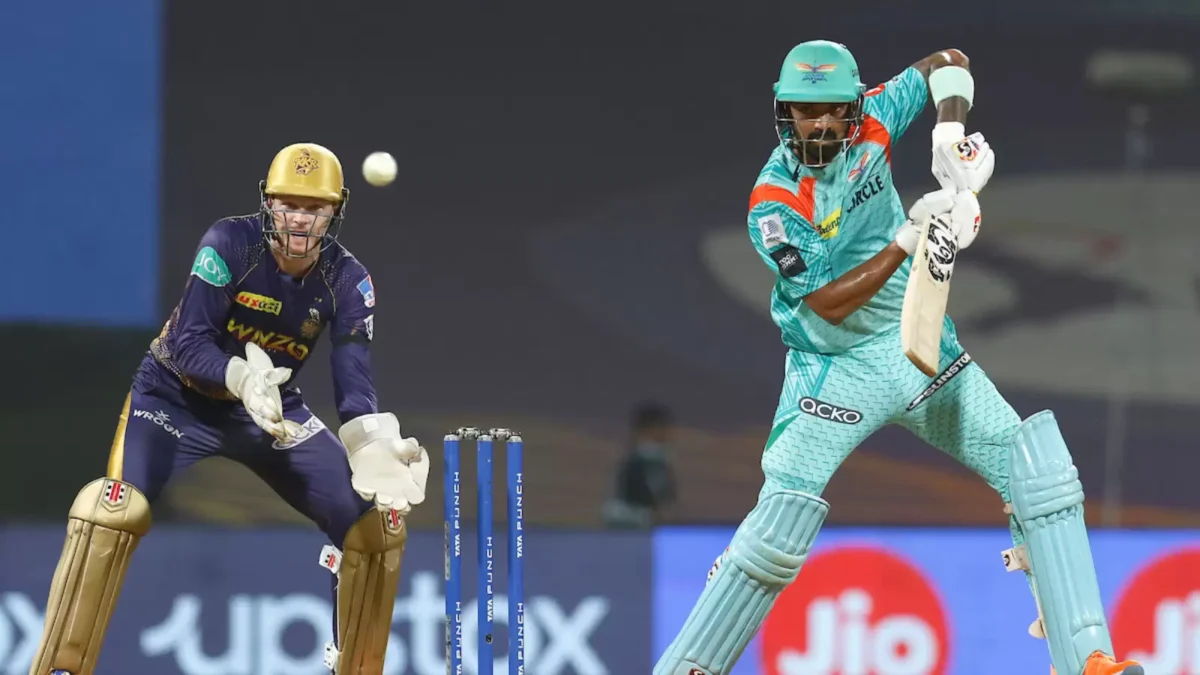
As Quinton de Kock went on a frenzy of his own against the Kolkata Knight Riders on Wednesday’s, KL Rahul’s relatively cautious approach did raise quite a few eyebrows.

Despite power-hitting and innovation being its major components, the T20 school of batsmanship has enough room for convention and class. Forget the recency and cast your minds to the past, Virat Kohli and Kane Williamson – two of the game’s modern greats – have proved that time and again in T20Is and in the IPL.
The secret of creating a decisive impact with the bat lies in the game-awareness, be it for the experts Miandads, Bevans and Dhonis masterminding a tense white-ball chase, or for the other discipline specialist Shannon Gabriel trying to save a Test match. The perfection or the expertise though comes with experience.
Add flair, timing, and technical proficiency to all the traits mentioned above – KL Rahul has it all. And therefore, when he batted at a strike-rate of 133.33 in a wicketless innings against KKR on Wednesday, scoring less than half to Quinton de Kock’s monumental 70-ball 140*, his rather cautious approach did call for a debate.
That was a game and a half!🔥
A total of 1️⃣3️⃣4️⃣ runs were scored in the last 4 overs of both the innings combined!
LSG made good use of the wickets in hand & accelerated well, while KKR came from behind, & almost pulled off a miracle, thanks to Rinku Singh & Narine!#KKRvsLSG pic.twitter.com/VDbnUsaDLZ
— Stat Doctor🩺 (@stat_doctor) May 18, 2022
LSG did manage to post a daunting 210/0 – the first-ever instance in IPL history where both openers carried their bat through a completed innings. However, it would’ve almost been short had Rinku Singh (40 off 15) and Sunil Narine (21* off 7) delivered the final blows in an attempt to pull an incredible heist, after Shreyas Iyer, Nitish Rana, and Sam Billings had chipped in earlier.
Would it have come to Rahul’s 68* off 51 had the result been otherwise? Of course, there was poor planning and execution with the ball in various phases to argue about, but T20 cricket is all about seizing key moments. De Kock certainly did, and so did Rinku and Narine. Rahul perhaps didn’t.
Interestingly, Rahul and de Kock both were going almost hand in hand in terms of scoring till the 14th over (50* and 60* respectively) with the former having just reached his fifty off 41 balls. Off the ten balls Rahul faced thereafter, he cleared the fence just twice, while de Kock continued the assault.
A glaring sight was when the LSG skipper just nudged a harmless slower one from Tim Southee for a single in the 19th over, right after he had tonked a six downtown. In hindsight, it helped the cause as de Kock plundered 38 off the last 10 balls all by himself, but it’s almost irresistible to not scratch your heads over the safety first idea till that point, with Evin Lewis, in-form Deepak Hooda and Marcus Stoinis to follow.
During his third fifty of the season in which he has already smashed two hundreds, Rahul became the first-ever batter to aggregate 500-plus runs in five consecutive IPL editions. The consistency has been a product of his sense of responsibility, which made him accustomed to playing the anchor’s role and bat long during his stint with the inconsistent Punjab Kings team for the last four years. In an LSG outfit that has gained greater success with a better team balance, Rahul can afford to unleash his fiery best when set, as he did against the Mumbai Indians twice this season, but thought otherwise against KKR.
As for the skills, there’s never a doubt. Here’s a man who strikes at 142.49 in T20Is with two hundreds, including a 51-ball 110* in a run-chase of 246 against the West Indies. He still holds the fastest fifty in the IPL, a 14-ball record achieved four years ago when he took Trent Boult, Mohammed Shami, and Amit Mishra to the cleaners in Mohali. In 2020, he had clobbered 26 in a Dale Steyn over in Dubai while getting to the second of his four IPL tons.
By his own admission, LSG “could easily have been on the losing side and have gone back home thinking we lost due to some poor cricket,” as he stated after a nervy win. There have been quite a few opinions that he could have accelerated better, as was the case two years ago when his 54-ball 69 in a team effort of 223/2 against the Rajasthan Royals had come under scrutiny, after Rahul Tewatia made a mockery of the target with his sensational blitz.
His infamous remark of the strike-rate being “very, very overrated” from a couple of years ago does carry a lot of meaning on days when life is difficult for the batters. Scoring rate matters little if Herschelle Gibbs’ 48-ball 53* on a challenging Wanderers surface is enough to win Deccan Chargers an IPL final, and when Shubman Gill battles through to carry his bat for a 49-ball 63* on a rather sluggish Pune pitch to set up a thumping 62-run win. It might not be the case on a night when your opponents knock 58 of the 61 required off the final 3.1 overs on a batting paradise.